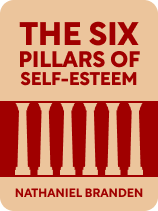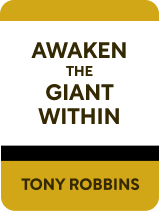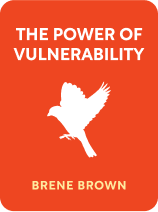

This article gives you a glimpse of what you can learn with Shortform. Shortform has the world’s best guides to 1000+ nonfiction books, plus other resources to help you accelerate your learning.
Want to learn faster and get smarter? Sign up for a free trial here .
Do you consider yourself a person of integrity? What does it mean to live with integrity?
Living with self-integrity means living in accordance with your values. Your values are in turn informed by your intuition and the vision of the kind of person you want to be.
Keep reading to learn what self-integrity is and what it means to live according to it.
What Is Integrity?
In her book The Way of Integrity, life coach Martha Beck defines self-integrity as the psychological state of living in accordance with your own personal nature—your deepest level of self, you know what will make you happy and what kind of life you want to lead. You may experience your personal nature in the form of intuitions or deep personal yearnings, or a sense that something is “off” in your life when you stray too far from your nature.
While each of us has a personal nature, our daily life is not always aligned with this nature. For example, you might spend your life locked into a routine, when your nature is more spontaneous, or you might spend your life in solitude when your nature is more sociable.
According to Beck, most people are not in alignment with their nature. She explains that this happens because our nature may be out of alignment with our culture. Beck argues that you grow up as a member of society where you consciously or unconsciously absorb cultural messages about how to live and who to be. When you internalize these messages, they solidify into beliefs. You may form beliefs about the “right” things for you to pursue in life and the “right” person to be, even if they aren’t true for your personal nature. When this happens, we create false beliefs. These false beliefs then pull you away from being aligned with your personal nature, which may want something else entirely.
According to Beck, there are two ways culture may prevent you from living with integrity:
1. You Chase Goals You Don’t Really Want
Cultures often teach us what to want in life. Your culture may teach you that pursuing wealth, status, and “success” (however defined) will make you happy. Then you might put an enormous amount of effort into achieving those things only to find that they haven’t actually made you happier. That is because these goals are not necessarily aligned with your personal nature.
For example, an employee believes that becoming a manager would make them feel successful because this role is higher in their company hierarchy. However, deep down, they actually hate working with other people and would rather take a job where they complete projects independently. Because of the messages they’ve internalized from their work culture, this employee might spend years chasing that management position, only to feel miserable once they get it.
2. You Try to Be Someone You’re Not
Beck argues that you may absorb lessons from your culture about who has value and who does not. In an effort to be someone who has value, you may then try to change who you are to conform to this standard.
For example, someone might believe that they need to be physically attractive to have value. Then they spend all their time exercising and shopping for clothes when really they would rather be learning a musical instrument with that time. This causes them to be out of alignment because they pursue an image of themselves while rejecting the deeper motivations of their personal nature.
Why Acting With Integrity Matters
Not only does acting without integrity prevent you from pursuing things that you really want in life, it also damages your self-respect and thus your self-esteem. By rejecting the behavior your own mind decided is right, you reject yourself and lose self-respect.
It doesn’t even matter if anyone else knows if you choose not to do the right thing (for whatever reason). Your self-respect depends only on how you judge yourself. Since you can’t avoid knowing whether your behavior reflects your values, you can’t violate your integrity without damaging your self-respect—and thus your self-esteem.
In addition to self-judgment, lack of self-integrity causes guilt, which you feel because you chose not to live by your values.
That said, you can only choose to live by your values—to practice self-integrity—in situations you can control. As such, it’s important to understand the difference between what you can and can’t control. For example, you can’t control that you were promoted right after your friend was fired, but you can control how you deliver that news to her. Otherwise, you may feel guilty over something you couldn’t control—which may comfort you by making you feel like you could have changed an unfortunate situation.
The Six Pillars of Self-Esteem
by Nathaniel Branden
66 min reading time
67.2k reads
audio version available
How to Live With Integrity
It’s very hard to find fulfillment if you go against your own nature—the part of yourself that knows what the right thing to do is and what you need to be happy. Fortunately, you can work on cultivating self-integrity.
Identify Your Values
Everybody has values that guide their decision-making. Whether your values are consciously articulated or not, they are driving your decisions and choices in life.
When your values are in alignment with who you want to be and how you want to live your life, you are living in a state of self-integrity. However, when you unconsciously pursue values that you’ve internalized from culture but that don’t reflect who you want to be, you lack self-integrity.
Furthermore, your values exist in a hierarchy, with some values preceding others in their relative significance. When you are clear on your value hierarchy, you can improve your life by deciding to actively pursue the values that mean the most to you and will bring you the most fulfillment. For example, if you are offered a great promotion at work but it would require you to move overseas, you must determine whether you value success above connection with family and friends, or adventure over comfort.
In his book Awaken the Giant Within, Tony Robbins recommends identifying two value hierarchies that guide what you do and don’t do:
- Your hierarchy of “moving-toward values” ranks the values that bring you pleasure, such as love, power, and freedom. The values at the top of this hierarchy are those that you would do almost anything to fulfill.
- Your hierarchy of “moving-away-from values” ranks the values that you want to avoid because they bring you pain, such as confrontation, fear, rejection, and loneliness. The values at the top of this hierarchy are those that you would do almost anything to avoid. For example, if your coworkers invite you to karaoke, you may not want to go because you want to avoid the humiliation of singing in front of everyone, but you may go anyway because your fear of social rejection is greater than your fear of humiliation, and you don’t want your coworkers to reject you if you pass on their invitation.
First, become aware of how you currently prioritize your moving-toward values. There are countless values that you could hold and adopt, but, to get started, rank the following values in order of priority:
- Love
- Success
- Freedom
- Intimacy
- Security
- Adventure
- Power
- Passion
- Comfort
- Health
Second, once you’ve identified your current moving-toward values hierarchy, assess it to see what you’d like to shift in order to create the life you want. Initially, you might feel reluctant to change your values, because they’re such an integral part of who you are—but they don’t define you.
Not only will you still be you when you shift your values, but you’ll be you in control of your life and destiny. With that in mind, follow these steps:
- Think of the values you would need in order to be the best person you could be and live the best life you could. Consider values that aren’t already on your list. As you think of additional values, decide where they fit best in your hierarchy.
- Ask yourself which values you can eliminate from your priority list. You may eliminate values that are important to you, but which you have achieved sufficiently to take your focus off of them. For example, you may decide to remove “stability” from your hierarchy because, while it’s still important to you, you’ve achieved a high level of stability in your life and you realize that your continued focus on it is making you less willing to take necessary risks to fulfill other values.
- Look at each value on your list and assess what benefits you get from that value and from placing that value in its particular position in your hierarchy. For example, why does prioritizing “achievement” above “happiness” shape your life in a positive way?
- Look at each value on your list and ask yourself what the drawbacks are of having that value in its particular position in your hierarchy. For example, having “success” as your highest priority may help you to achieve great things, but it may also force you to make sacrifices in fulfilling your “love” and “health” values.
- Reviewing your revised list of values, ask yourself what priority order they need to be in to guide you to the future you want. Just like cooking, you can have all the right ingredients, but you won’t get the result you want unless you put them in the right order.
After doing this exercise, you can feel confident and at peace knowing that you’ve harnessed the powerful force of your values to drive your decisions and actions toward creating the life you want. Of course, merely putting these words into a list won’t change your life—you need to condition yourself to internalize these values. Hang your values list where you’ll see it frequently, and create leverage by asking the people in your life to hold you to your new values.
To ensure that your hierarchy of moving-away-from values don’t hamstring your progress, the next step is to do the same process with those values. First, rank the following values in order of how far you would go to avoid each:
- Rejection
- Anger
- Frustration
- Loneliness
- Depression
- Failure
- Humiliation
- Guilt
Then, follow the steps above to reevaluate the importance of these values to you and determine where they should really appear in your hierarchy.
Be Willing to Say “No”
In addition to consciously articulating your values, living with self-integrity means sticking to them in your behavior. This requires you to be willing to say “no” to people when they ask you to do something that goes against your values. You may frustrate some people when you begin to do this, but agreeing to do something you don’t want to do damages your self-integrity and builds the foundation for resentment.
To prepare yourself, practice saying “no” in the mirror, and bring notes with you when you’re turning someone down. These habits allow you to become more comfortable in the situation and allow you to keep your emotions from clouding your judgment.
This doesn’t mean you have to say “no” every time someone asks you to do something for them. You can help people when they reach out but have a clear sense of where your line lies.
Final Words
When you act with self-integrity, your behavior reflects your values. You may not choose the perfect option every time, but you strive to find and follow the option that best reflects your values. If your values point to opposing behaviors, you weigh your options and select what seems best.
If you enjoyed our article about self-integrity, check out the following suggestions for further reading:
Man’s Search for Meaning is one of the best books about the meaning of life you can read. It recounts Viktor Frankl’s experiences in the concentration camps of WWII and the school of therapy he invented to help us confront this very question. Frankl set out to write a book that analyzed the mindset of the average concentration camp prisoner and how it reflected, adapted to, and either succumbed to or transcended beyond the torments of the camps. He wanted the book to serve as concrete proof that humans can find meaning under any conditions, even the most horrific.
In The Untethered Soul, spiritual teacher Michael A. Singer, founder of the Temple of the Universe meditation center and a pioneering figure in the world of medical software, teaches you how to use your direct self-knowledge as an intuitive tool for spiritual awakening. Combining powerful principles with practical techniques, he shows you how to free yourself from false identities and live an enlightened life of peace, joy, creativity, and divine love.

Want to fast-track your learning? With Shortform, you’ll gain insights you won't find anywhere else .
Here's what you’ll get when you sign up for Shortform :
- Complicated ideas explained in simple and concise ways
- Smart analysis that connects what you’re reading to other key concepts
- Writing with zero fluff because we know how important your time is









